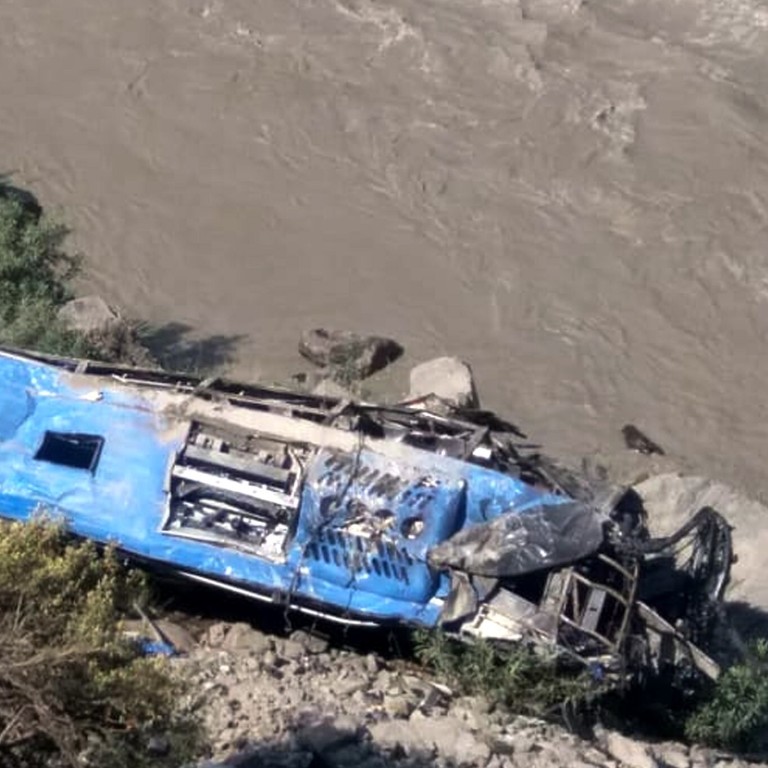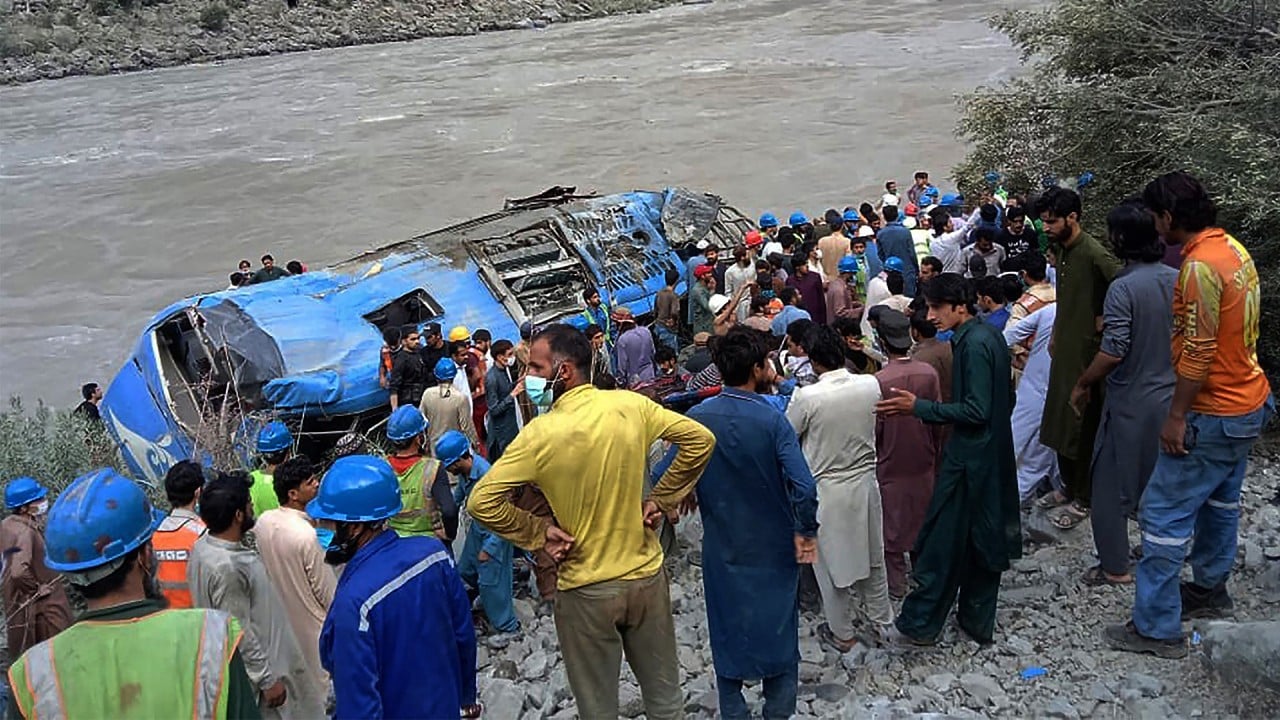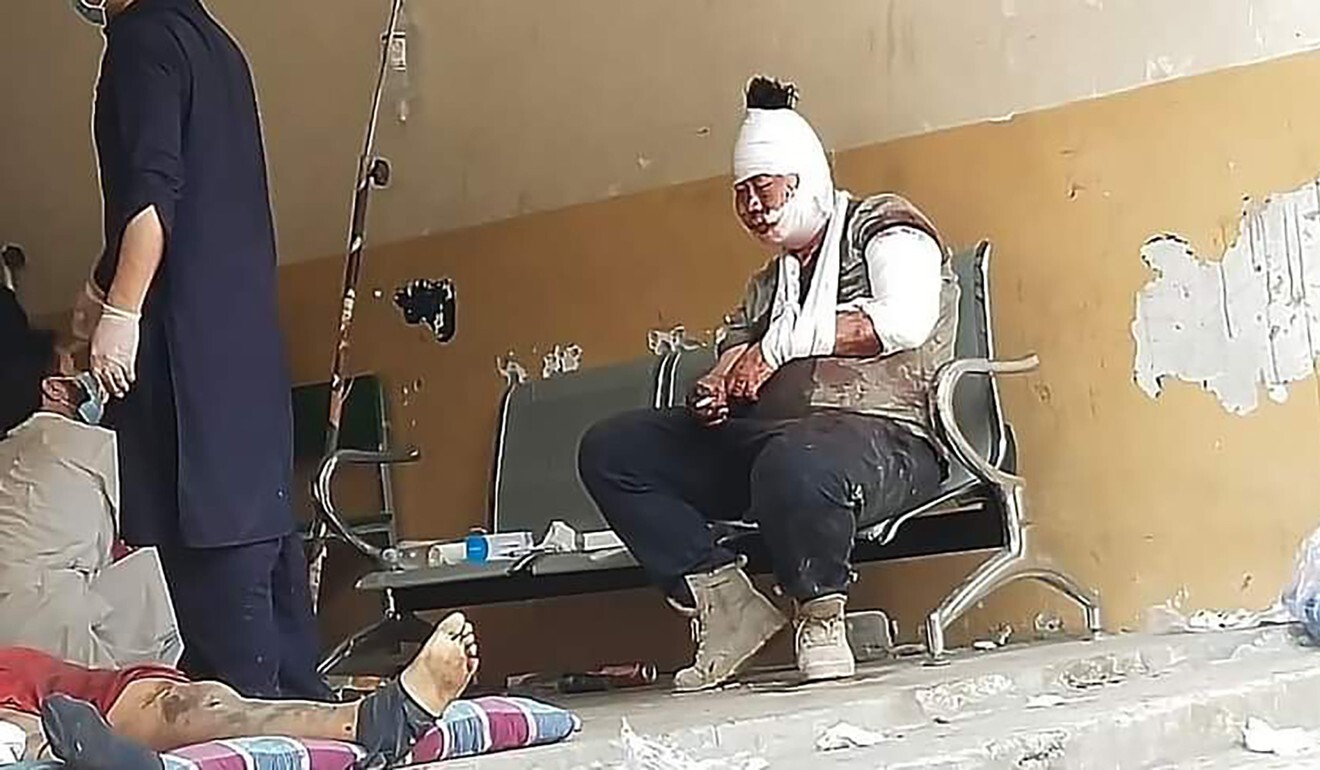
Pakistan bus blast that left 9 Chinese nationals dead was work of suicide bomber, editor says
- Fahd Husain reported the details in his column for Pakistan’s ‘Dawn’ after a briefing by top officials, a source says
- Chinese Premier Li Keqiang and Pakistan PM Imran Khan both described the blast as a ‘terrorist attack’ in a Friday phone call
The details reported by Fahd Husain – resident editor of Pakistan’s top English-language newspaper, Dawn – came as Chinese Premier Li Keqiang and Pakistani Prime Minister Imran Khan discussed via phone the incident that left a total of 13 people dead.
Pakistan bus blast: why is anti-China terrorism suspected, who is behind it and what do they want?
Pakistani officials had earlier described the incident as being caused by a gas leak or a vehicle failure – with at least one Chinese expert expressing the latter view to Beijing-backed tabloid Global Times – although the country’s information minister in a Thursday tweet said “confirmed traces of explosives” had been found.
In Husain’s column, published on Friday, he wrote that two buses carrying Chinese engineers, surveyors and technicians to the construction site at the Dasu hydropower project were intercepted by the suicide bomber as soon as they left their residential camp at the nearby town of Barseen.
“As this convoy came onto the road that was open to traffic, another car manoeuvred itself between the convoy. This vehicle was laden with explosives,” Husain wrote.

01:51
Nine Chinese nationals among 13 killed in Pakistan bus blast
“The driver then rammed the car into the first bus and there was an explosion. However, the detonator malfunctioned and the explosives did not go off with full force. The driver of the second bus, on seeing the bus in front of him hit, tried to swerve but lost control and the bus plunged into the ravine, killing most people on board.”
The Middle Eastern nation’s neighbours are increasingly worried about its domestic situation on the back of the withdrawal of American troops, with China also concerned about the safety of the China-Pakistan Economic Corridor (CPEC), its US$65 billion investment plan. The CPEC aims to link western China to the Arabian Sea port of Gwadar under Beijing’s Belt and Road Initiative.
‘Delicate moment’ for China, Pakistan as suspicions rise that bus blast was terrorist attack
Premier Li said a Chinese team had arrived in Pakistan to support Islamabad’s investigation into the incident, and that Beijing attached great importance to the safety of Chinese citizens and institutions overseas. He urged Pakistan to “use all necessary means to conscientiously, responsibly and accurately ascertain the truth of the facts, as the perpetrators of the terrorist attacks must be brought to justice”, and make every effort to prevent similar incidents from happening again.

In May, a suicide bomber used a vehicle-borne improvised explosive device (VBIED) to attack a luxury hotel in the western Pakistani city of Quetta where Chinese ambassador Nong Rong was staying at the time. He was not on the premises when the vehicle exploded in an adjacent car park.
Responsibility for the Quetta hotel attack was claimed by the Tehreek-e-Taliban Pakistan (TTP) insurgency movement, although it issued contradictory statements as to whether the Chinese envoy was its target.
No militant group has claimed responsibility for the Dasu and Lahore VBIED attacks.
“This [Dasu] attack has uncanny similarities with the Quetta and Lahore attacks,” said Singapore-based analyst Abdul Basit in response to Dawn resident editor Husain’s column.
In a Twitter post, Basit said the re-emergence of vehicular suicide attacks for the first time since the TTP retreated into Afghanistan following its defeat by Pakistan’s military in 2015 “means that militants equipped with technical skills are moving around in Pakistan and they have money and networks”.
“In Pakistan’s context, suicide VBIEDs are not cheap and you need a network – explosive experts, mechanics and bombers – to pull it off,” said Basit, an associate research fellow at the S. Rajaratnam School of International Studies.
The Dasu attack meant there were “counterterrorism intelligence gaps” in Pakistan’s security operations, he said.

